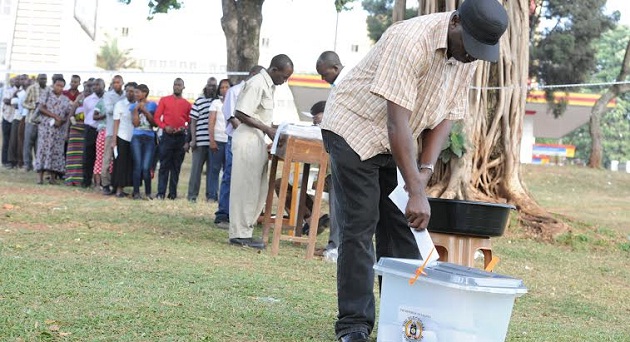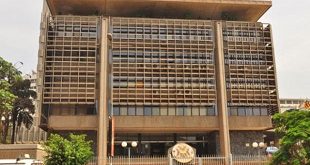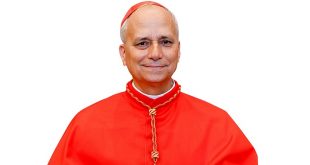
How political competition in our country is conducted on wild promises based on imaginary state capabilities
THE LAST WORD | ANDREW M. MWENDA | We are entering an election season and many things are going to go wrong in this country. President Yoweri Museveni will not initiate anything serious fearing its implications on voters. But he will enter a spending binge where loads of cash will be given to individuals and groups that he knows represent particular voter segments. So the State House budget is going to be huge next financial year. Then we are going to hear a lot of rhetoric from opposition politicians promising to build bridges where no rivers exist. To counter them Museveni too will make many wild promises.
This mad-rush to please voters with promises of publically funded welfare programs far exceed the resources of the state. This is the challenge of every poor country. This is because the state in poor countries is constructed (functionally) on the same lines of the state in advanced countries. We take the governance structure of advanced nations as the standard on which other states should organise themselves. We ignore the fact that this governance structure is recent in all the advanced countries and only became possible because of enormous growth in state revenues.
For instance, the state in rich countries provides all its citizens with a large basket of public goods and services. These include supply of water treatment plants, electricity generation, transmission and distribution facilities, schools and universities, hospitals and health centers, roads, bridges, airports, railways and seaports. These public goods ensure the delivery of public services such as clean piped water, electricity, education, medical care, transportation etc. For the most part, government legitimacy in rich countries depends on the ability of the state to perform these functions.
But the state in rich countries has not always been like this. The classical state was a war-making machine. As Charles Tilly has argued in his famous paper “War Making and State Making as Organised Crime”, states made war and war made states. So the basic function of the classical state was the maintenance of law and order and also ensuring the security of person and property of (often) the most important citizens. The modern welfare state is a recent development, beginning in the late 19th century but gaining its current form after World War Two. And as already argued above, it was only possible because of enormous growth in state revenues.
At independence all poor countries built the state along these lines of vast welfare functions of the developed. They mimicked the state in rich nations by seeking to base their legitimacy on the provision of a large basket of public goods and services. However, the state in poor countries lacks the necessary revenues to govern this way. How do governments in poor countries reconcile this? Because what we see is a poor man e.g. MTN’s fictional advertisement character, Bosco, setting his family lifestyle along the lines of Uganda’s richest man, Sudhir Ruparelia.
Our leaders promise to perform all the roles rich governments perform. They put in place physical infrastructure (hardware) and hire manpower (software) to perform these functions. Then their meager resources, both human and financial, are spread too thin to be effective. This is because the state gets over developed in function when it is underdeveloped in capacity; so its reach goes far beyond its grasp. This leads to the institutionalised corruption and incompetence that we find in poor countries – an inevitable outcome of the huge mismatch between ambition and capacity.
For instance, governments in poor countries do not have the money to pay decent salaries to their employees. For the most part, the salaries they pay their workers are below subsistence. In fact governments in poor countries pretend to pay their workers and government employees also pretend to work. Just imagine that a police officer in Uganda is paid about Shs500,000. He has a wife and three children. He rents a house, pays transport, and has to feed, clothe and feed his family. This salary is not enough to sustain him. How do we expect him to survive?
The same applies to teachers, nurses and very many other public (and often private sector) employees. This low pay is a major cause of chronic absenteeism in government facilities; especially health and education. Often, government employees use their offices to get bribes: so doctors steal drugs and send them to their private clinics, nurses sell hospital bed-space, head teachers steal the building fund, tax collectors help traders under-declare goods, police officers take bribes not to investigate cases etc. These acts, which are officially proscribed as corrupt, are the ways in which the state in poor countries is actually able to function.
The colonial state paid decent wages to its employees in large part because it restricted services to a few people. For instance, in the whole of western Uganda (the kingdoms of Ankole, Toro, Bunyoro and the district of Kigezi), there were only four public hospitals. At independence, the total number of students in high school (S5 and S6) was only 343 and enrollment at Makerere University was 800 students in a country of seven million poeple. Also we must remember that Makerere served the entire East and Central Africa – Uganda, Kenya, Tanzania, Malawi and Zambia. There were only 250km of paved roads in Uganda in 1961.
Uganda’s population has grown six times from seven million in 1962 to 42 million today. That means that at the same rate of enrollment today we should have a little more than 2,000 students in S5 and S6. We actually have over 180,000. University enrollment should be about 3,000 but it is over 120,000. The postcolonial state has been generous in expanding the reach of public goods and services and equally ineffective in ensuring quality. It is impossible to rapidly expand access without significantly compromising quality.
Debate on public policy in Uganda (like elsewhere in Africa) is constructed on erroneous assumptions. Elites think that because the state assumes this role it is able to perform it effectively. This financial year Uganda’s total budge is $8 billion for 42million people. That gives us public spending per person of about $193. Last year, public spending per person in the U.S. was $21,750. We expect and demand the state in Uganda performs the same functions and employs similar governance strategies as the U.S. The U.S. had public spending per person as Uganda today in 1866. At that time it did not provide such a large basket of public goods and services.
****
amwenda@independent.co.ug
 The Independent Uganda: You get the Truth we Pay the Price
The Independent Uganda: You get the Truth we Pay the Price




Mr Andrew M9 is at it again; wanting to blame the colonial govt & praise his contemporary govt. For instance, M9 attempts to ridicule the colonial govt for building “only” 4 public hospitals for the entire western Uganda region of Ankle, Toro, Kigezi, and Bunyoro, and building another “only” 250 kms of paved roads etc. at Uganda’s independence in 1962! Mr M9 sir, how many modern hospitals minus the “only” four, or, minus “only” 250 kms of paved roads, were there before these evil colonialists arrived in Uganda? How many five-star schools like the ones you went through such as Busoga college Mwiri, Nyakasura school, Mbarara High, King’s College Budo etc, how many airports, railway lines did pre-colonial Uganda build? Mark you the pre-colonial authorities too in their respective states such as Toro, Ankole, Buganda & Bunyoro used to collect enormous taxes from their subjects! Mr M9 reluctantly credits the colonial govt for paying decent salaries to their employees, purportedly because they were a select few! But those were the only people who had gone through formal education whose skills could be employed, Mr M9! Are you aware Mr M9 that the few still surviving Ugandans who lived under her Majesty’s Uganda suffer from the nostalgia of colonial govt? Efficient Healthcare, education, transport to mention a few, almost unheard of runaway today’s corruption ? Give us a break Mr M9 with overzealousness of your “after-reaching-the-road-to-Damascus-govt”
Interesting Spot-On Article from Mwenda again. He should however offer solutions.
The African state is doomed. Many elites are in denial but there is no future prosperity for African states without accepting that drastic changes take place
1. Have fewer Children, It should be a TOP government mandate with incentives for parents who have fewer kids. Have fewer enlightened citizens as Increasing Government resources is a much more difficult ask. (I do not see ). the Elites may be counting on Oil down the line but by the time Oil gets out of the ground, global demand will see prices Oil prices on the same level as Pineapple prices.
2. Abolish political parties and have a ONE party state which is more open to everyone and is very dynamic.
3. Forget the past and start afresh, build new cities from scratch (there is plenty of land) where infrastructure can well be planned. This will be cheaper than bringing the necessary resources to the S*** planned cities.
4. Reduce on corruption! I am not against corruption but even this should be reasonable, Why would One individual take a cut of US$ 50 Million!!
5. e.t.c.
Many will not agree with me for sure, but Good luck being Third World Countries forever!
As for me, I believe that for any meaningful progress we need dictatorship. Peasants don’t know how to get what they need let alone they want.
Statistics shows no economy has ever developed because democracy but the reverse is true
Is it not true the President has advised Ugandans to have more children and that he would educate them? Why does he not clearly state it to Ugandans that the state cannot cater for their all their education/health care needs. As such, they should be advised to have a number of children that they can properly care for. The late Moi of Kenya did exactly that but our M7 still thinks that the 42 million for a peasant society leaving off the land of only 95,000 sq miles is not enough!
As for me, I believe that for any meaningful progress we need dictatorship. Peasants don’t know how to get what they need let alone they want.
Statistics shows no economy has ever developed because democracy but the reverse is true
Joash. Govts & elites must do soul
search to realise how they
have let.down their countries.
They live like european
millionaires not even midldle
class ones,with fleets of Suvs
and huge storeyed houses.
BUT look at legal sources of
income ,: taxes , salaries
and profits NO way can these
sources fund the extravagant
.. expenditures.
THUS we see huge public
borrowing on part of Govts
and inhuman corruption by
. elites .
.
SOLUTION, everything must
change . We must live as per
our incomes as individuals
and Govts must STOP
wasteful and extravagant
spending.
When a man is dating a woman he will be at his best interms of behavior; he can even change his accent especially when the woman he is trying to date is highly educated.It happens alot for someone to say things they don’t believe in just to achieve their goals.
The world has transformed alot in that there is no room for mediocrity;The world order is no longer about Ideology its about technology and trade.
@ Uwelugosi:Why should government build more hospitals when there are few people failing sick?why should they build another airport when Entebbe is not so busy?(Is that what you people power chaps are planning to do?
Far from the point Winnie. My comment intended to debunk M9’s newly discovered myth that actually dictator M7’s govt has done a lot of wonders for Ugandans than any other govt be4!
When the colonizers arrived here they didn’t find even an inch or so of a paved road, modern hospital, bridge, etc. But taxes were being collected from every corner, yet there was no value for tax money!
@ Uwelugosi: But what happened to you People Power Chaps when it comes to conceptualization?i thought it was the colonialists who brought civilization to Africa ;Actually Uganda’s development is mostly attributed to the regime of the colonialists and that of NRM.
Most developing nations are grappling with the same social and economic challenges because their governments had not anticipated that their people would one day demand for high quality social services